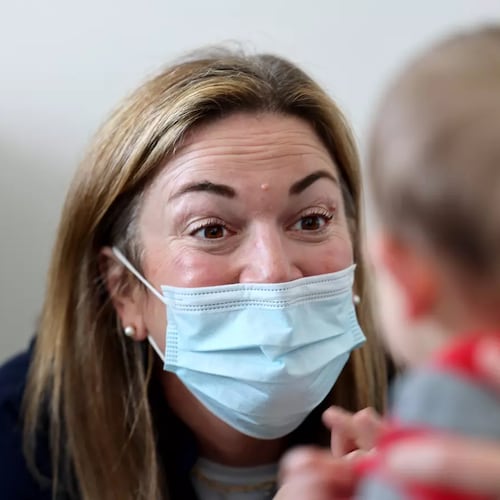COVID-19 hospitalizations and deaths are declining in Georgia after a modest, but worrying summer rise.
Dr. Felipe Lobelo, an epidemiologist at Kaiser Permanente of Georgia, said the drop in illnesses is encouraging but he doesn’t expect the trend to last as colder weather and a busy travel season begins.
New COVID hospitalizations in Georgia totaled 598 during the week ended Sept. 16, the most recent week for which data was available from the Centers for Disease Control and Prevention. It was the third consecutive week of a decline for the state and down 22% from the week ending Aug. 26, which was the peak of the summer surge. Nationally, hospitalizations also showed a drop for the week ending Sept. 16, with 19,674 new hospitalizations for COVID reported.
The falling numbers follows a pattern seen in previous years. But it has also typically is followed by a larger winter surge of illness after people start gathering indoors for fall and winter holidays.
“Although numbers currently are dropping overall, COVID hospitalization cases have never approached zero,” said Dr. Jayne Morgan, executive director of health and community education for Piedmont Healthcare in an e-mail. “The trend is that cases are slowing and appearing to plateau. This may herald a ‘simmering’ period after which cases may begin to rise again.”
Public health experts say the U.S. has a wall of immunity from vaccination and prior infections and they don’t expect a surge to reach the levels of previous winter seasons.
One key to how serious the winter surge will be is the newest COVID vaccine update just approved this month — and whether the health industry can solve the rocky rollout so far.
Vaccine shipments started arriving in Georgia after the Food and Drug Administration and the CDC both gave their approval earlier this month. But two weeks after the distribution began, some people are still showing up for vaccine appointments to find their pharmacy has run out, or to find they’re expected to pay out of pocket when they shouldn’t.
COVID vaccines for children, especially children under 5, are not yet widely available. While a small number of pediatricians report they have the shots available for their young patients, Vaccines.gov, the main resource for directing people to locations that have received shot supplies, does not show a single location in Georgia where children can get the shot. Instead, it directs parents in Georgia to locations in neighboring states.
Credit: Miguel Martinez/AJC
Credit: Miguel Martinez/AJC
Some of the challenges were expected with the shift in vaccine distribution to the private market. Earlier in the pandemic, the federal government spent billions of dollars of emergency funds to purchase COVID vaccines, which were provided to the public for free.
But with the public health emergency ending earlier this year, the government is shifting the cost of the shots and administering the shots to the commercial market. Manufacturers have said they will charge $120 to $130 per shot, not including any fee to administer the shot.
Observers say most issues with distribution and insurance coverage should be resolved within days but that’s little consolation to those who want to get vaccinated as soon as possible.
In a letter sent Friday by the U.S. Department of Health and Human Services to insurance companies, the feds said it had repeatedly raised concerns that some people were experiencing insurance coverage denials when trying to get an updated COVID shot.
U.S. Secretary of Health and Human Services Xavier Becerra reminded the companies of the law requiring them to help policyholders get vaccines without paying out of pocket. He added that some of the glitches were out of the insurance companies’ control, but for those within their control, he asked them “to consider any and all ways to reduce these barriers.”
Most of all, he urged them to help policyholders easily find out which doctors, pharmacies and clinics are within their networks. Companies have a long history of failing to provide accurate network lists online, and sticking policyholders with surprise bills when they mistakenly go to an out-of-network provider. There is rarely a legal penalty when insurance companies do that.
He also noted that if a plan or issuer does not have a provider in its network who can provide a coronavirus preventive, like the vaccine, they must cover the cost when it is administered by an out-of-network provider and without any cost sharing.
Morgan of Piedmont said vaccines are the best defense against COVID and also recommends people order free COVID tests available which are once again available from the federal government.
“Remember, millions are suffering from long COVID. We are now only beginning to understand the biology of this disease process. . . Much more research needs to be done to understand and fully treat all those who are suffering and try to return people back to their normal lives pre-COVID,” said Morgan. “Remember, the best way to not develop Long COVID is to not contract Covid at all.”
Keep Reading
The Latest
Featured



